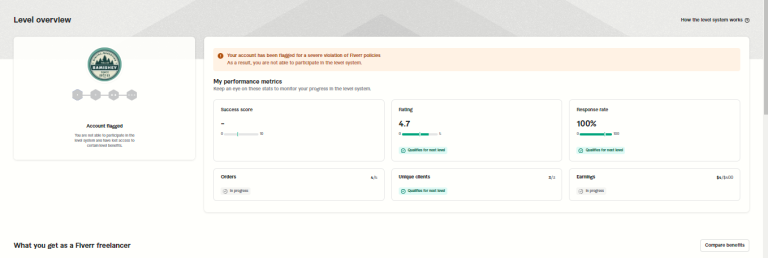What Is a Budget? And Why You Should Care

You’ll be surprised by how much money you can save when you start budgeting.
The term budget can be confusing or feel restrictive to some people. It is simply a plan set aside for your money and tracking where it goes. There are many ways to budget, but the goal is always to create more freedom with your finances, not less. Budgeting is one of the building blocks of personal finance, and it is vital to understand how to create and stick to a budget to be in charge of your finances.
What is Budgeting? What is a Budget?
A budget is a plan on how you will spend your money over a given period of time. It can be great to think of your budget as a road map that will take you from where you are now to where you want to be financially.
Creating a budget is the first step on the journey to financial freedom. It can be made for different periods, such as monthly, weekly, or even annually. The key is to find a timeframe that works for you and stick to it. Once you have created your budget, you must track your progress and make the necessary adjustments as needed.
There are numerous ways to create a budget, but one of the most popular methods is the 50/30/20 rule. Under this approach, 50% of your income goes toward essential expenses, 30% is discretionary costs, and 20% is savings or debt repayment. No matter what method you use to create your budget, the goal should always be to ensure that your spending aligns with your financial goals.
What’s the purpose of a budget?
Budgeting is about taking control of your finances and making informed decisions about how to best allocate your resources. It is not about depriving yourself but ensuring you make the most of your money.
A budget should be flexible, changing as the situations around you change. For example, if you get a raise at work or suddenly become a homeowner, your budget should reflect that. It is important to remember that everyone’s financial situation is unique; therefore, one size does not fit all when it comes to budgeting.
The goal is to give your budget as much personal customization as possible, so you can maintain flexibility if your finances suddenly worsen. Of course, there will be surprises and mistakes, but if you have a solid plan in place, you can weather them much more easily.
Why Is Budgeting so Important?
Budgeting is a necessary planning process that can help individuals to manage their finances better and achieve their financial goals. It can be beneficial for people of all income levels, not just those who struggle financially. A budget can help you to live within your means and make the most efficient use of your money. By carefully planning and tracking your expenditures, you can ensure that your money is working for you in the best way possible. Here are the importances of budgeting:
It provides a roadmap for your finances: A budget is like a map that shows you where you are now and where you want to be in the future. Without a budget, it’s easy to get lost in the sea of expenses and forget your financial goals.
Understand your relationship with money: When it comes to managing your finances, understanding your relationship with money is key. This means tracking your income and expenses to get a clear picture of where your money is going. Once you have this information, you can start looking for patterns and identify areas where you may need to make changes. For example, you may find that you are spending less than you earn (which is excellent!) each month, but you are still paying for a subscription you no longer need.
Have a saving for the future: When thinking about the future, planning for both short-term and long-term goals is crucial. Saving money is a vital part of this process, as it helps you to have a cushion in case of unexpected expenses and also to save for specific goals that you may have.
Get or stay out of debt: Debt is something that can be a hindrance to one’s financial stability. Therefore, staying out of debt or getting out of debt if one finds themselves in it is essential. One way to avoid debt or help pay off existing debt is by mapping out expenses in advance. This will help reduce the risk of overspending and help you stay on track with your finances.
Relieve stress: While budgeting cannot completely alleviate financial stress, it can help you manage your money and prepare for unexpected challenges. By tracking your spending and setting aside money each month, you can create a safety net that can help reduce anxiety about your finances. Additionally, budgeting can help you make informed decisions about where to allocate your resources, saving you money in the long run.
Types of Budgets
Personal Budget
A personal budget is a financial plan that helps individuals manage their income and expenses. It allows you to determine how much money you have coming in, where your money is going, and how much you can afford to save. To create a personal budget, start by identifying your sources of income. This may include your salary, bonuses, or any other regular income you receive. Next, determine your monthly expenses, including housing, utilities, food, transportation, and entertainment. Once you have determined your expenses, subtract them from your income to determine how much money you have left over each month. This amount can then be allocated to savings or paying down debt.
Business Budget
A business budget is a financial plan that helps businesses manage their income and expenses. It allows business owners to determine how much money is coming in, where it is going, and how much they can afford to invest in growth. To create a business budget, start by identifying your sources of income. This may include sales revenue, investments, or any other regular income your business receives. Next, determine your monthly expenses, including rent, utilities, payroll, inventory, and marketing. Once you have determined your expenses, subtract them from your income to determine how much money you have left over each month. This amount can then be allocated to investments, such as expanding your business or paying off debt.
Government Budget
A government budget is a financial plan that helps governments manage their income and expenses. It allows government officials to determine how much money is coming in, where it is going, and how much they can afford to invest in public services. To create a government budget, start by identifying your sources of income. This may include taxes, grants, or any other regular income your government receives. Next, determine your expenditures, including public services, defense, healthcare, and education. Once you have determined your expenses, subtract them from your income to determine how much money you have left over each month. This amount can then be allocated to investments, such as infrastructure projects or paying down debt.
Components of a Budget
Income: Income is the amount of money that an individual or business earns on a regular basis. It includes all sources of revenue, such as salaries, wages, bonuses, investments, or any other regular income. When creating a budget, it is important to determine your income so that you can determine how much money you have available to allocate to expenses, savings, and debt payments.
Expenses: Expenses are the costs associated with living or operating a business. They include things like housing, utilities, food, transportation, payroll, inventory, and marketing. When creating a budget, it is important to determine your expenses so that you can determine how much money you need to allocate to each category.
Savings: Savings is the amount of money that an individual or business sets aside for future use. It can be used for emergencies, investments, or any other financial goals. When creating a budget, it is important to determine your savings goals so that you can allocate a portion of your income to savings each month.
Debt Payments: Debt payments are the amounts that an individual or business pays towards outstanding debt. This may include credit card debt, loans, or any other outstanding balances. When creating a budget, it is important to include debt payments so that you can allocate a portion of your income towards paying off debt.
How to Create a Budget
Identify Your Income Sources: The first step in creating a budget is to identify your income sources. This includes your salary or wages, any bonuses or commissions, investment income, and any other sources of income. Make sure to include all sources of income, whether they are regular or irregular. This will give you a clear understanding of your total income.
Determine Your Expenses: Next, you need to determine your expenses. This includes all of your monthly bills, such as rent or mortgage payments, utilities, groceries, transportation costs, and any other recurring expenses. Make sure to account for any irregular expenses as well, such as yearly insurance premiums or quarterly tax payments. It’s important to be as accurate as possible when calculating your expenses, so you can get a clear picture of your financial situation.
Set Savings Goals: Once you have a clear understanding of your income and expenses, you can start setting savings goals. This can include short-term goals, such as saving for a vacation or a new car, as well as long-term goals, such as saving for retirement. When setting your savings goals, be realistic and specific. This will help you stay motivated and track your progress over time.
Determine Debt Payments: If you have any debt, it’s important to include it in your budget. This includes credit card debt, student loans, and any other loans or lines of credit. Determine how much you need to pay each month to stay on track with your debt payments. If you are struggling to make your debt payments, consider reaching out to a financial advisor for guidance.
Use a Budgeting Tool: Finally, you can use a budgeting tool to help manage your finances. There are many budgeting tools available, including spreadsheets, mobile apps, and online tools. These tools can help you track your income and expenses, set savings goals, and monitor your progress over time. Some budgeting tools even provide personalized financial advice to help you stay on track.
Common Budgeting Mistakes to Avoid
Underestimating Expenses: One of the most common budgeting mistakes is underestimating expenses. Many people tend to overlook some of their monthly expenses, such as subscriptions, utility bills, and transportation costs. It’s essential to track all your expenses for at least a month to get an accurate picture of your spending habits. You can use a budgeting app or a spreadsheet to track your expenses and categorize them. Once you have a clear idea of your expenses, you can adjust your budget accordingly.
Failing to Plan for Unexpected Expenses: Another common mistake is failing to plan for unexpected expenses. Emergencies, such as car repairs, medical bills, and home maintenance, can happen at any time and can quickly derail your budget. It’s important to set aside some money each month for unexpected expenses, ideally in a separate emergency fund. This way, you’ll have a cushion to fall back on when the unexpected happens.
Being Too Strict: While it’s important to stick to a budget, being too strict can lead to burnout and frustration. It’s essential to allow yourself some flexibility in your budget to account for occasional splurges or unforeseen events. You can set aside a small amount of money each month for discretionary spending or allocate a certain percentage of your income to fun activities. This way, you won’t feel like you’re sacrificing all the time and can still enjoy life while staying within your budget.
Not Accounting for Debt Payments: If you have debt, such as student loans or credit card balances, it’s crucial to include them in your budget. Ignoring debt payments can lead to high-interest charges and a growing debt burden. Make sure to allocate enough money each month to cover your debt payments, and consider using a debt repayment calculator to see how long it will take to pay off your debt.
IN SUMMARY
Budgeting can be complex, but it is essential for financial stability. Various budgeting methods are available, so it is better to find the one that best suits your needs and lifestyle. Once you have found a budgeting method that works for you, it is important to stick with it and update it as needed. Tracking your progress is also key to maintaining a successful budget.
Budgeting is a process that requires careful planning and execution. According to Blaylock, tracking progress daily or weekly is crucial, especially early on in the budgeting process. This will allow people to make necessary adjustments to their spending if they are straying off track. In addition, by monitoring budget progress regularly, individuals can make course corrections before the end of the month and avoid any negative financial consequences.
Several budgeting apps or software programs can help manage one’s finances, including Mint, Personal Capital, and You Need a Budget (YNAB). Budgeting is just one aspect of personal finance, but it can help set you up for paying off debt, saving, investing, and fulfilling your life goals.
How do you start a budget?
Are you ready to get started with budgeting? Great! The first step is to get an overview of your financials, including your income, account balances, debts, and expenses. Once you have that information, you can start setting priorities and finding the right budget system for your needs. And if you run into any problems, here are some tips to help you get back on track.




